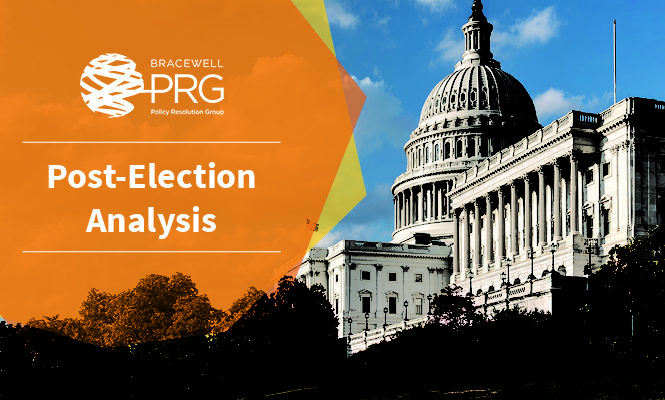Our hosts debrief on the Midterm election and what the results mean for the next two years of politics in Washington. For a deep dive into industry-specific policy assessments of Midterm results, check out our episode published Wednesday that features the full audio of the PRG team’s morning-after analysis webinar. Full materials can be found on PRG’s website here.
The Atlantic: How Both Parties Lost the Texas Senate Race
I spoke with Elaina Plott of The Atlantic about the Texas Senate race and political miscalculations on both sides:
But in critiques of O’Rourke’s strategy, the deficiencies of his challenger—and the GOP as a whole—become just as clear. Texas may play host to mostly conservative voters, yes. But massive early-voting numbers and record turnout among minority demographics reveal that the state is shifting not so much in how its citizens decide to vote, but in who decides to show up. “A lot of the patterns last night were predictable,” the Republican strategist Liam Donovan told me. “It was the volume that caught everyone by surprise.” For Cruz, the blind spot was telling: His campaign based its electoral models on 6 million voters, far shy of the 8 million who ultimately turned up to vote. It’s the kind of miscalculation that, if replicated, could spell doom in the future for Republican candidates in Texas and beyond.
Read the entire piece here.
Bracewell PRG Post-Election Analysis
My PRG colleagues and I break down the midterm results and what they mean for the policy agenda in the 116th Congress. These materials compliment a full morning-after webinar presentation from the team that can be found here.
CONTENTS
Overview
Energy
Environment
Infrastructure
Taxes
Trade Policy
Consumer Product Safety
Congressional Oversight
Appropriations
Financial Services
I authored the tax and financial services sections–click through for the full analysis.
TAXES: Trump Tax Returns, TCJA Oversight, and Repeal & Replace 2.0
By: Liam Donovan
The Tax Cuts and Jobs Act (2017) is here to stay, but that won’t stop ascendant House Democrats from seeking to repeal and replace the legislation. Meanwhile, oversight of the President’s tax returns could lead to partisan fireworks that color the rest of the agenda.
What Does This Mean For You?
Companies, industries, and the business community as a whole must be prepared to defend the considerable gains achieved in the Tax Cuts and Jobs Act—both before Congress and the American people. The prospect of immediate policy changes is mitigated for the time being by the GOP Senate majority and (at least) two more years of a Trump White House. Yet if the law is not broadly seen as popular or effective, retrenchment is just a matter of time. A 21 percent corporate tax rate is only as permanent as the political will to preserve it.
To read our full tax analysis, click here.
FINANCIAL SERVICES: A New Day for Democrats Spurs a Return to Dodd-Frank Priorities
By: Liam Donovan and Paul Maco
House Democrats shift the financial services agenda to aggressive oversight, pumping the brakes on the Trump administration’s deregulatory agenda.
What Does this Mean for You?
Large banks will find themselves the primary focus of increased scrutiny under a Financial Services Committee helmed by Rep. Waters. Nevertheless, the committee is also likely to focus on a suite of issues applicable to a far broader slice of corporate America than the financial services industry itself. Businesses should prepare for incoming scrutiny of corporate governance issues, including executive compensation; ESG practices; and composition of board membership. The two banking committees will also play an active role in any legislative push involving privacy, data security, and protection of consumer information, potentially affecting companies well outside the financial arena.
To read our full financial services analysis, click here.

